Feedback, a UK and Netherlands based organisation campaigning for sustainable and ethical food, has published a report linking the Norwegian salmon farming industry to poor nutrition and livelihood outcomes in West Africa. Norway has become the world’s largest salmon farming country with a handful of companies dominating the market, including MOWI which had nearly €5 billion in turnover in 2022.
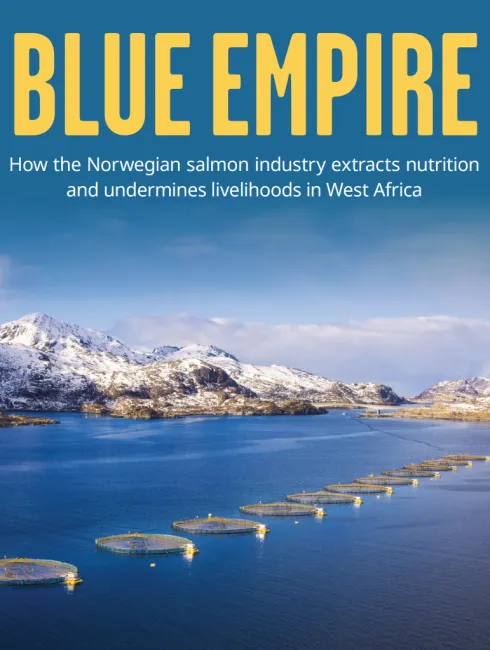
Summary
Feedback, a UK and Netherlands based organisation campaigning for sustainable and ethical food, has published a report linking the Norwegian salmon farming industry to poor nutrition and livelihood outcomes in West Africa. Norway has become the world’s largest salmon farming country with a handful of companies dominating the market, including MOWI which had nearly €5 billion in turnover in 2022.
The report investigates Norwegian salmon farming, finding the industry to be less sustainable and more wasteful than farmed salmon and feed producers such as Cargill, MOWI and Skretting have previously claimed. They find the excessive feed demand required to support Norwegian salmon farming has been supplied predominantly from countries in West Africa including Gambia, Senegal and Mauritania. The report sets out to critique the mismatch between stated developmental policy goals of the Norwegian government and actual business practices being conducted inside of its borders, and to highlight hypocrisies of global aquaculture corporations.
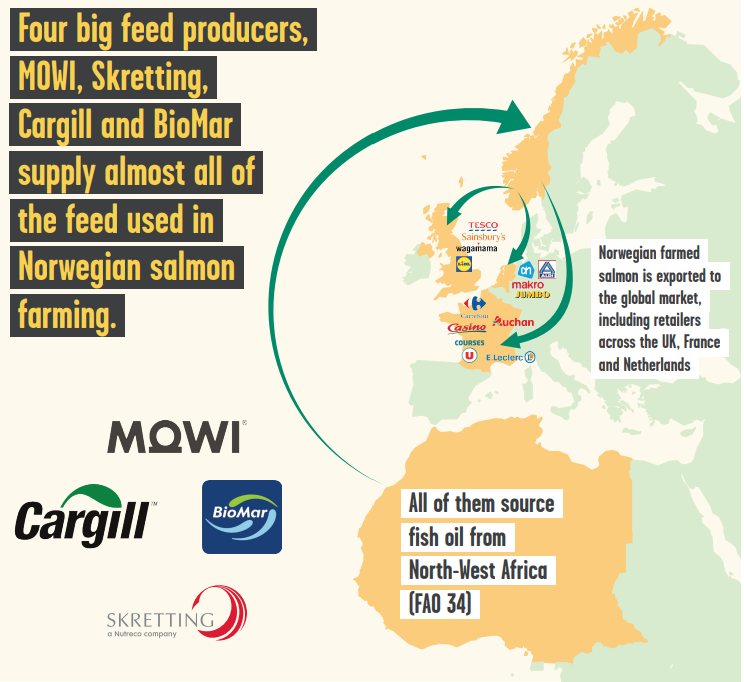
Image 1: Visual demonstrating the flow of salmon feed from West Africa to Norway and the farmed salmon to western european countries driven by four major companies MOWI,, Cargill, BioMar, and Skretting
Among the findings of the report, the authors find that significant quantities of fish are being extracted from West Africa to benefit the production of salmon farming corporations based and serving high income customers in the Global North. The report links these activities to a continuation of extractive practices of European countries in the Global South. It also contributes to on-going discussions of food-feed competition.
The report also highlights new modelling developed by Feedback which demonstrates it is possible to reduce Norwegian salmon production whilst increasing overall seafood production. This model relies on replacing salmon feed that currently depends on wild caught fish with fish oil and fishmeal exclusively made from waste products from already existing production systems. Their model suggests nearly 1 million tonnes of wild fish could be saved. These fish could feed additional people in West Africa or continue to carry out their role in marine ecosystems.
Reference
Blue Empire: How the Norwegian salmon industry extracts nutrition and undermines livelihoods in West Africa, 2024. Feedback. https://feedbackglobal.org/wp-content/uploads/2024/01/Feedback-BlueEmpire-Jan24.pdf
Read the full report here and see more from us on What is feed-food competition? And our blog To eat fish or not to eat fish? That is the wrong question

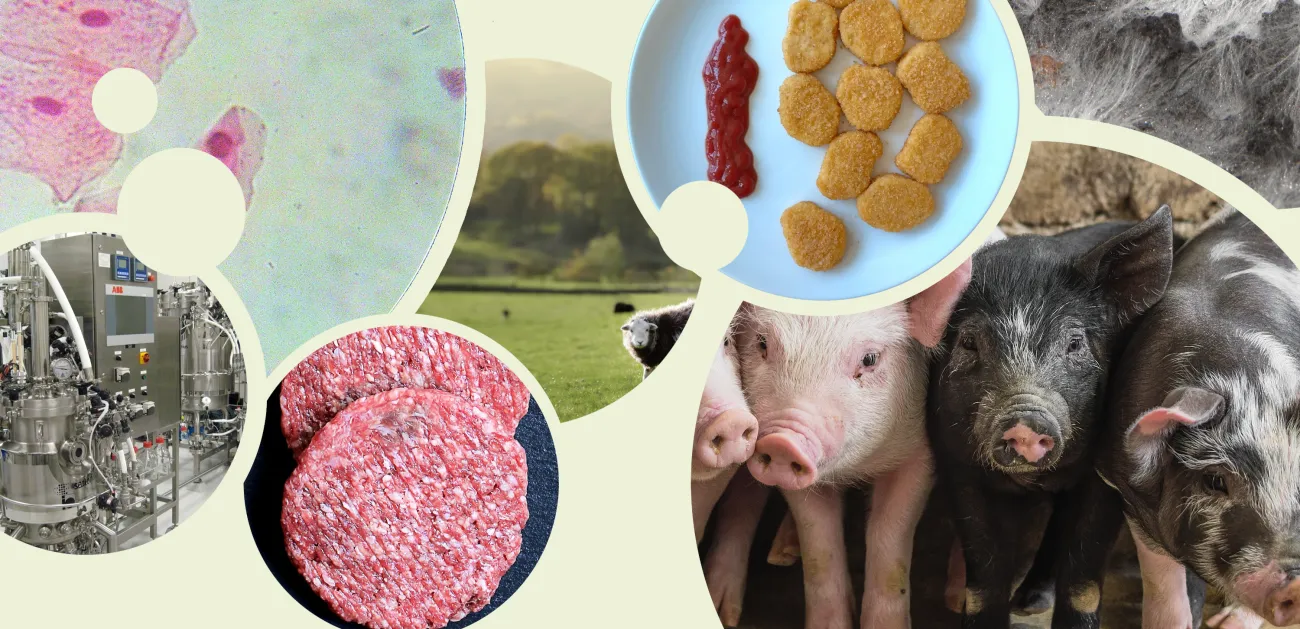
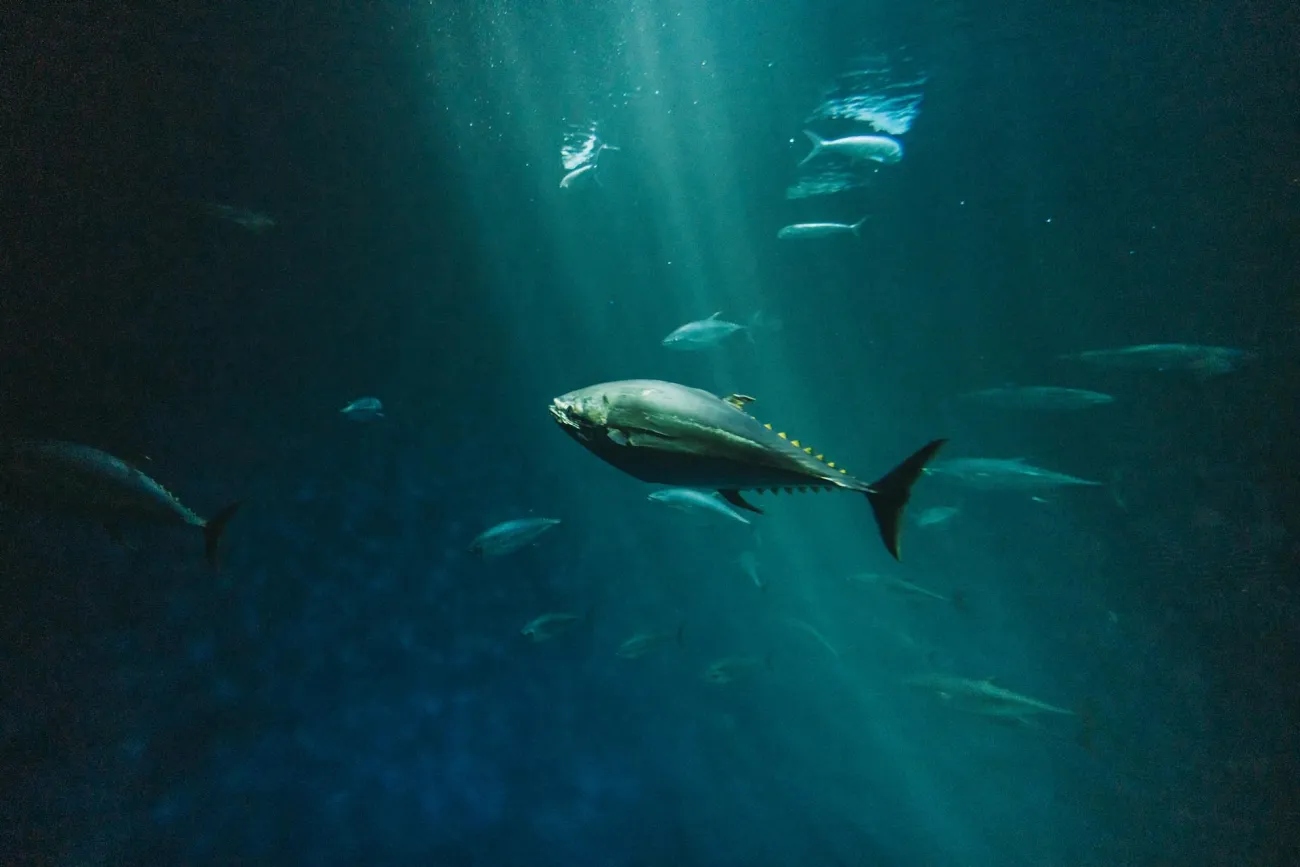
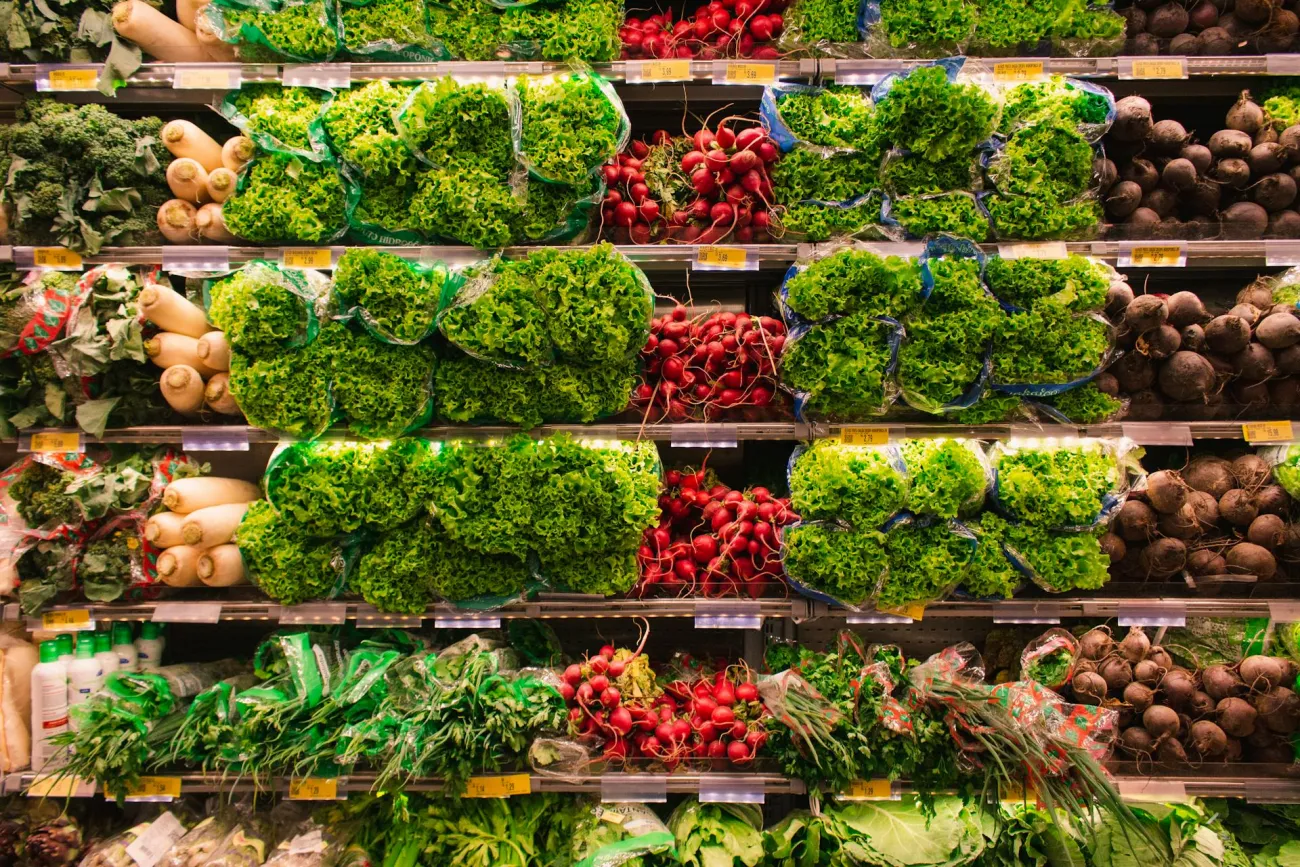
Comments (0)